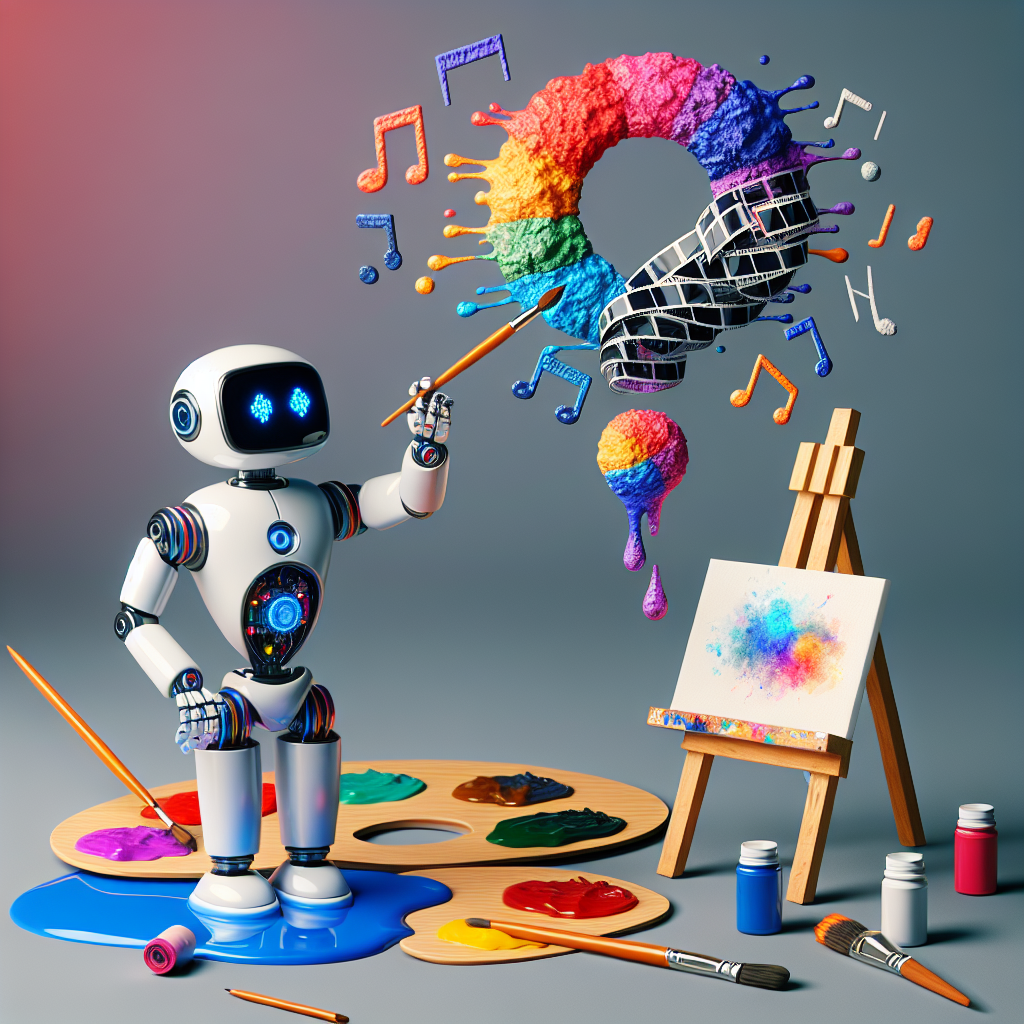Artificial Intelligence (AI) has made significant advancements in various industries, including entertainment. From recommendation systems on streaming platforms to creating digital art, AI has been used to enhance the user experience and streamline production processes. However, with these advancements come risks that could potentially impact creativity and artistry in the entertainment industry.
One of the main risks of AI in entertainment is the potential for homogenization of content. AI algorithms are designed to analyze data and predict what will be popular or successful based on past trends. This can lead to a focus on creating content that fits into these predetermined categories, rather than pushing boundaries and exploring new ideas. As a result, there is a danger that the entertainment industry could become saturated with formulaic content that lacks originality and diversity.
Another risk is the loss of human touch in the creative process. AI can be used to generate music, art, and even writing, but it lacks the emotional depth and nuance that comes from human experience. While AI can mimic certain aspects of creativity, it cannot replicate the unique perspective and intuition that human artists bring to their work. This could lead to a decline in the quality and authenticity of artistic expression in the entertainment industry.
Furthermore, there are concerns about the impact of AI on employment in the entertainment industry. As AI technology advances, there is a fear that automation could lead to job losses for artists, writers, and other creative professionals. While AI can assist in certain aspects of production, it cannot fully replace the creativity and innovation that humans bring to the table. This could result in a decrease in opportunities for artists to showcase their work and make a living in the industry.
In addition, there are ethical considerations surrounding the use of AI in entertainment. AI algorithms are trained on data that may contain biases and stereotypes, which can perpetuate harmful narratives and representations in media. This can have a negative impact on marginalized communities and contribute to the perpetuation of harmful stereotypes. It is essential for creators and industry professionals to be mindful of these issues and take steps to ensure that AI is used responsibly and ethically in the entertainment industry.
Despite these risks, there are also opportunities for AI to enhance creativity and artistry in the entertainment industry. AI can be used to assist artists in generating ideas, enhancing production processes, and reaching new audiences. By leveraging AI technology, creators can explore new possibilities and push the boundaries of traditional art forms. However, it is crucial for industry professionals to strike a balance between utilizing AI as a tool for innovation and preserving the authenticity and diversity of artistic expression.
FAQs:
Q: Can AI truly replace human creativity in the entertainment industry?
A: While AI can assist in certain aspects of creativity, such as generating ideas or assisting in production processes, it cannot fully replace the emotional depth and nuance that comes from human experience. Human artists bring a unique perspective and intuition to their work that cannot be replicated by AI.
Q: How can creators ensure that AI is used ethically in the entertainment industry?
A: Creators and industry professionals must be mindful of the biases and stereotypes that may be present in AI algorithms and take steps to ensure that AI is used responsibly and ethically. This includes being transparent about the use of AI in content creation and actively working to mitigate any harmful impacts on marginalized communities.
Q: What are some ways that AI can enhance creativity and artistry in the entertainment industry?
A: AI can be used to assist artists in generating ideas, enhancing production processes, and reaching new audiences. By leveraging AI technology, creators can explore new possibilities and push the boundaries of traditional art forms. AI can also help streamline production processes and improve efficiency in content creation.
In conclusion, while AI has the potential to enhance creativity and innovation in the entertainment industry, there are risks that must be considered. From the homogenization of content to the loss of human touch in the creative process, there are challenges that must be addressed to ensure that AI is used responsibly and ethically. By striking a balance between leveraging AI as a tool for innovation and preserving the authenticity and diversity of artistic expression, the entertainment industry can continue to evolve and thrive in the digital age.

